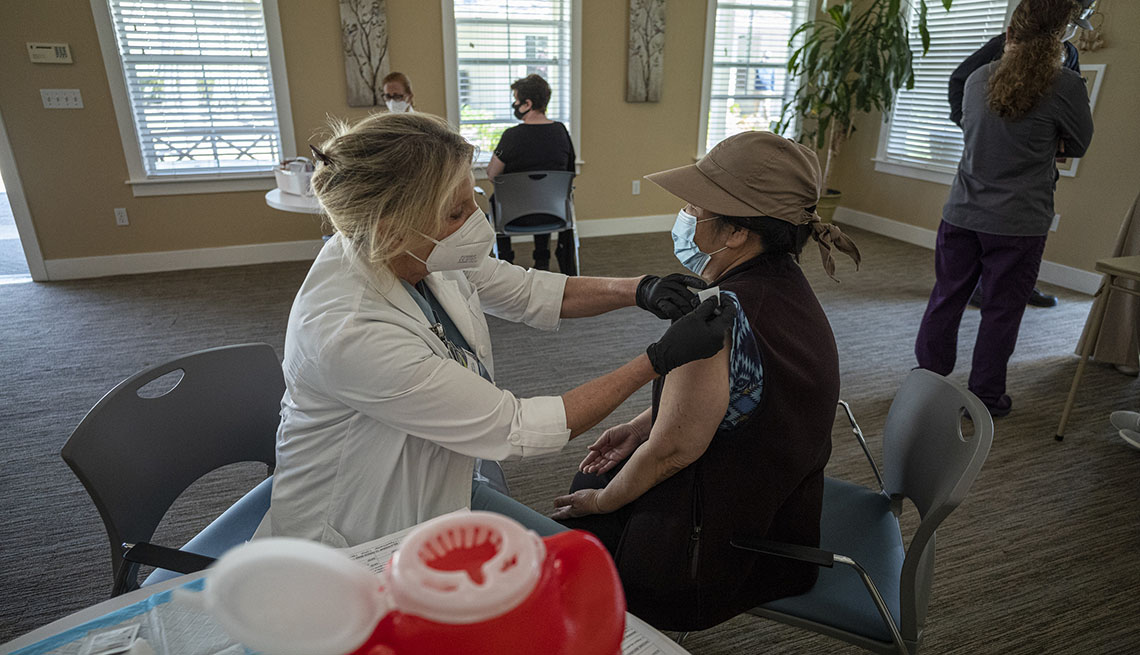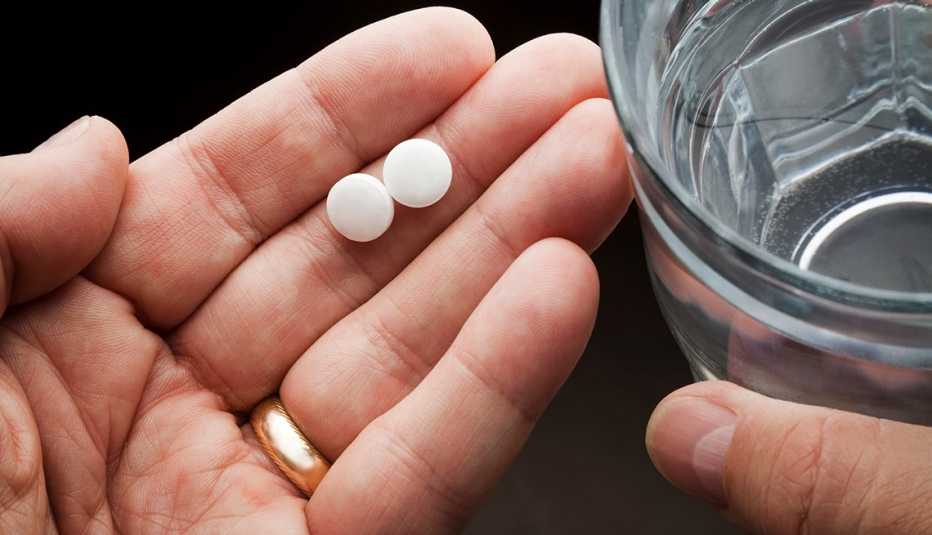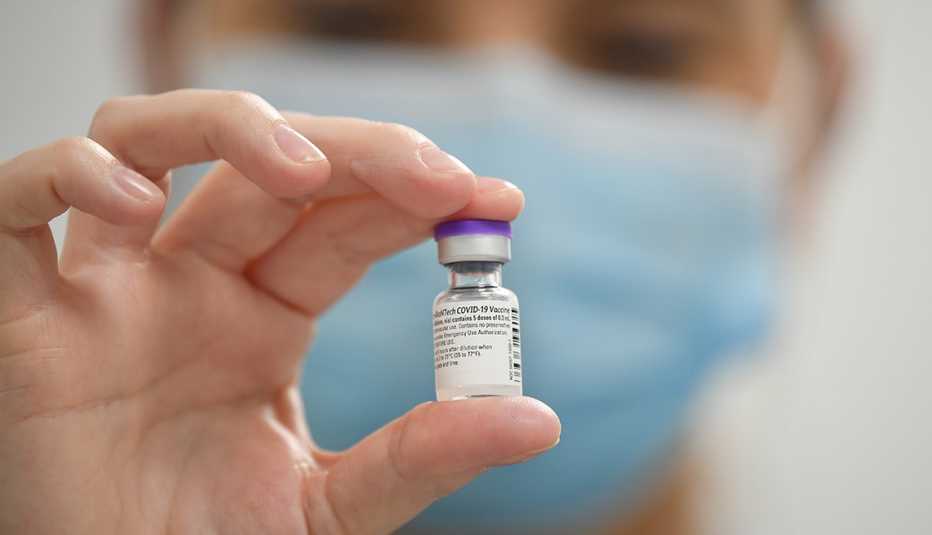AARP Hearing Center
If you're one of the 7 million Americans who received the Johnson & Johnson (J&J) COVID-19 vaccine, you may be wondering how the government's new recommendation to pause its use impacts you. Here are five things you should know.
1. The cases under review are ‘really rare'
The recommendation to pause the use of J&J's single-dose vaccine comes out of “an abundance of caution,” officials from the Centers for Disease Control and Prevention (CDC) and the Food and Drug Administration (FDA) said on Tuesday. So far, six cases of a serious type of blood clot, called cerebral venous sinus thrombosis, which prevents blood from draining out of the brain, have been reported in individuals who had received the shot. These six people — all women between the ages of 18 and 48 — also had low levels of blood platelets (thrombocytopenia).
"This is a really rare event,” Anthony Fauci, director of the National Institute of Allergy and Infectious Diseases, said in a White House press briefing on the topic. Comparing the number of reported cases with the number of shots administered, it's “less than one in a million,” Fauci added.
It's also important to keep in mind that health experts haven't established a definite link between the vaccine and the blood clots, said William Moss, executive director of the International Vaccine Access Center at the Johns Hopkins Bloomberg School of Public Health. “That's obviously what's being investigated,” he added, noting that if a causal relationship is identified, health officials may make adjustments to the vaccine's authorization, perhaps restricting its use for certain populations.
When to See Your Doctor
Seek medical attention if within three weeks of receiving the J&J vaccine you experience:
- Severe headache
- Abdominal pain
- Leg pain
- Shortness of breath
The following symptoms are also of concern:
- Backache
- New neurologic symptoms
- Tiny red spots on the skin
- New or easy bruising
Source: FDA/CDC
2. The blood clot's symptoms are different from routine side effects
It's not uncommon to experience mild flu-like symptoms — fever, fatigue, muscle aches and headaches — shortly after receiving any vaccine, including a vaccine for COVID-19. But these symptoms typically fade within 48 hours of receiving the shot. When it comes to the blood clots under review, the symptoms were more severe in nature and popped up six to 13 days after vaccination.




































































